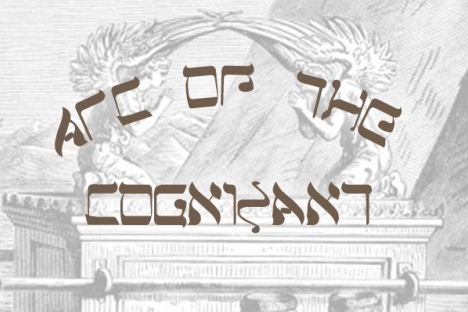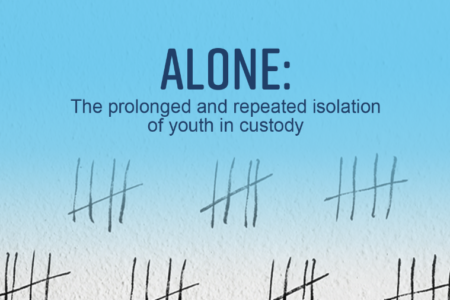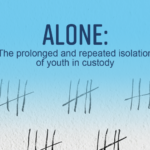COLUMN: Part Two -- An unprecedented political order coming?
Part One is the necessary introduction to Part Two. Please read it before reading this.
Birth of the West: demokratia and demos in ancient Athens
As I said in Part One, my Learning In Retirement at Selkirk College students are self-aware citizens; various puzzles for defining democracy came up in class when we spoke about being informed by the news as a duty of citizenship.
The word democracy derives from the Greek demos, the people. In our Western tradition of learning history, we’ve all heard of Athens and its form of rule by the people. Ancient Athenian democracy was extremely imperfect, excluding as it did all women; also, all non-citizens – people who lacked two Athenian citizens as parents — even if one was resident in the polis a very long time, were unable to participate in the democracy.
But the citizens’ Assembly became ever-more inclusive, the poor were paid to attend, the age limit was reduced, all property qualifications were eliminated. The Athenians were cognizant of the probability that men of aristocratic bloodlines – their status as nobles guaranteed by their wealth in land and livestock — might have an unfair advantage if magistrates were elected, and so citizens chose their Council of 500 by lottery — by random chance, a process by which the gods would choose among the citizens.
By the time of Athens’ imperial era, when it ruled over many other Greek states during the long-drawn-out war of its empire against the Spartan alliance, Athens enjoyed a democracy in which all male citizens were able to attend the Assembly in the city, to speak, to vote, and to hold offices, no matter their lack of high social class. Athens paid the poorest citizens for their time spent in Assembly on the Pnyx, the hill where a man could be seen by all his fellows in the voting body. But the empire was undemocratic.
Although it was a democracy, Athens at war let some very strong leaders acquire dominance over the citizens, as noted by the historian Thucydides. Pericles and Alcibiades were two men whose influence over Athenian policy was greater than one might expect a democracy to allow.
Leadership by egotistic men and the loyalty of uncritical followers are not easily explicable in a situation of democratic choices. People in democracies make some outrageous errors trusting men vacant of qualities one expects in quality leaders. The record of history has an alarming number of examples of atrocious leadership.
There was no “representation” of citizens by politicians chosen by balloting; decision was reached only by in-person attendance at the assembly, and many very important decisions about war, law, and expenditure, were settled by the men who attended to vote. The same men who voted were very probably experienced in fighting battles – a famous example is Socrates — as infantry or on warships, for Athens was involved in a constant series of wars in the fifth and fourth centuries CE. It was an imperialist polis.
It is estimated that on significant votes, perhaps one-third of all citizens were in attendance. Thus, Athens had a democracy more direct and meaningful than Canada’s in terms of participation of the electorate, the constituency of Athenians who had to fight the wars, pay the taxes, and determine what laws they would obey. There was also a council of 50 magistrates, a tenth of a body of 500 chosen by lot, for daily governance. It is a key fact that these 50 sat in a round building, all equal, all facing one another.
I want to stress that Athenian democracy was for Athens only, not for the subject peoples in other city-states, its imperial clients. Athenian citizens seemed to have been unconcerned by this cognitive dissonance. Domination of the peoples they’d annexed to the empire was undemocratic but bestowed power on Athens. The key mistake of Athens in its war with Sparta was to attack Syracuse to annex it to the empire. Their invasion failed after agonizing military defeat, and Athens began its long retreat.
Athenians and Canadians: the Past is a foreign country
It is good to know this deep history of the concept and practice of democracy. My students were keen to discuss Canadian liberal democracy in comparison with the original Greek experiments. The enormous cultural cachet of Socrates, Plato, and Aristotle, as revered foundational thinkers for the political norms and vocabulary of the West, makes Athens a beacon. Please note: Plato owned slaves; Aristotle said slaves had defective souls. Socrates did not doubt “the inferiority of the female”.
Here is a phrase to remember — “The Past is a foreign country”: it warns us not to think we know people in the past as we know ourselves. They were aliens to us.
Because Western civilization has evolved with a pyramidal social order, our elites determine what the rest of us ought to know, feel, and believe about the past.
England, America, Canada, and France, all feel — the elites of our cultures at least say so — indebted to Greek models of governance, to Greek language of political philosophy, to Greek values of liberty, independence, and virility.
However much our elites have traditionally reverenced Athens in its classical era, one must resist the easy notion that we and Athenians of that time were much alike.
For them, the normalcy of human slavery, male supremacy, and female inferiority, were unquestioned. War was endemic and systemic. Gods and goddesses and various supernatural beings were everywhere at work; the Fates and Furies, witches, curses and monsters, were accepted as explanations of human catastrophe.
And – this must be so very strange to us, with our Judaeo-Christian-promulgated shame about exposing our genitals — the ancient Greeks marked boundaries of their properties with stone markers called hermes: carven male genitalia atop square pillars; to look at them might make one blush. Here our difference from the Greeks is deep indeed, and for just that reason, I note the fact for my readers.
See some photos here:
For Greeks, invisible all-powerful beings around them was the normal human condition. The natural world shaded into the supernatural with ease. The world was enchanted, so to speak; some aboriginal people of Canada insist they still live in an enchanted state of reverence for nature and its ecological web of life. But this notion of enchantment is alien to the West’s modern irreligious mind since science and the Western Enlightenment transformed the general consciousness of peoples who live in the former Christendom and its settler colonies.
These realities, of another time and place and people, seem to me to set those ancient democrats in a cultural universe of consciousness vastly unlike ours now. This is such a difference of consciousness that political lessons from Athens are hardly obvious or applicable in Canada. Democracy might be a word we have in common, but not much else. Circumstances alter cases, is worth remembering. Our circumstances, and those of Athenians and other Greeks and of ancient peoples generally, are light-years apart. Please keep that gulf in understanding uppermost when you study Athens, or any other culture in a distant time or place.
My reasons for going into some detail about ancient Athens will become clear.
The Western Enlightenment and Human Progress
Here I ask the reader to consult their own understanding of the history of our civilization: do you comprehend that there is a “forward” direction in the march of history? Have you absorbed the idea that humanity is “making progress”?
Between Athenian democracy in its classical form and Canada in 2022 there stretch 24 centuries. Alexander’s conquest of the East; the Roman Empire with its law-and-order, (pax Romana) and then catastrophic decline and fall; medieval-feudal Christendom under the quasi-theocracy of popes; the Italian Renaissance resurrecting classical learning and Humanism; the shattering of Christian unity by Luther and other Reformation minds: these markers of the next 1500 years altered Western mind-scapes and worldview on a gargantuan scale.
Then came the two most-transformative phenomena of all — the Scientific Revolution and the Western Enlightenment re-engineering the minds and the consciousness of humanity in our civilization. The last-named era bequeathed to us an idea that we are “moving forward in history by progress in perfection of the human.”
The nineteenth century was the high age of Progressivist belief, and the horrors and disasters of the twentieth did not disillusion the West; indeed, a strong faith in human improve-ability migrated East to Soviet Russia and Maoist China, two vast lands where The Revolution was founded on the Marxian conviction that human history was marching toward a magnificent perfecting of society and the New Man. (homo novus)
In the 1960s, the dream of an age of better people was still an intoxicating spell under which many young people in the West fell, singing songs of peace, love, and freedom. I was one. In 1989, the West even seemed to have triumphed over all its global rivals, the occasion of Fukuyama writing his famous essay on the end of history.
The belief that we can be consciously improved by our own scientific knowledge and the application of knowledge to our minds and bodies, inventions and institutions, is alive now. Human colonies in the solar system is one manifestation of it, new religious impulse is another. We have secular myths of Star Trek and Avatar, hugely popular, as models.
Barbara Marx Hubbard, Jeremy Rifkin, Stephen Pinker, Ken Wilber, Jurgen Habermas – among many others, not all English-speaking — believe.
https://www.barbaramarxhubbard.com/
https://www.dailyevolver.com/theory/
Capitalist Progress
A less-sanguine view of secular material progress is, of course, possible too.
“Then the coal company came, with the world’s biggest shovel, and they tortured the timber and raped all the land. They dug for the coal till the land was forsaken, and they wrote it all down as the Progress of Man.” — John Prine, Paradise
Capitalism, the economic foundation of our Western ways, the materialist shaper of our immaterial consciousness, is inherently progressivist. I offer readers just one sample of a website where the capitalist mind, and its worldview, is on display in all its self-assurance that it will continue to be the great helmsman of the planet.
If you took the time to check out that site, you must find out about the source, here:
https://en.wikipedia.org/wiki/McKinsey_%26_Company
McKinsey, the corporate author of this site, represents the kind of capitalism that people of liberal/leftist political views could never consider aligned with their values.
Apocalypse? not acceptable. Progress? not believable.
Charles Eisenstein, as any regular reader of this column will know, is among those who deny that human Progress is real. Human improvement is not a Story we can believe any longer. He foresees a world vastly changing, but not “progressing.” Beyond spiritual advice for the individual human soul, Eisenstein’s blueprint for “the more beautiful world” is unwritten, as I read his stance now. From speaking in political-economic-social analytic language, Eisenstein has evolved toward a stance as intellectual-cum-spiritual mentor, as I see it; he has lost some of the people who followed him early in his career because of “being spiritual”, but gained others.
Most recently, his stance on Covid and vaccines has made him a “fringe” figure.
Eisenstein is hardly alone in denying progress in the Old Story; I refer readers to John N. Gray as a philosopher denying that progress is a phenomenon to believe in.
https://www.e-ir.info/2010/07/14/john-gray-and-the-idea-of-progress/
[a very in-depth piece and a fine overview of John Gray’s philosophic interests.]
The point to take from this, for my purposes, is – once one gives up the yearning to see progress, one enters the realm of uncertainty and possibility for human political, social and economic novelty. One begins to feel like The Hanged Man. Or, to employ language Eisenstein uses, one embraces bewilderment and the fruitful place of not-knowing. He refutes apocalyptic thinking and opposes it with faith in real miracles.
Apocalyptic thinking, so discouraged by Eisenstein, persuades a lot of modern and postmodern people, including me on my darker days. This inclination to see catastrophe ahead is a matter of temperament more than a matter of knowledge.
An excellent essay demonstrating bewilderment and apocalyptic vision in the face of the postmodern world is here:
https://harpers.org/archive/2022/12/apocalypse-nowish/
I read this recently and found myself nodding agreement several times.
This is the conclusion to Part Two. In Part Three, I examine Western thinking about progress and why it is, or is not, an ideology validated by evidence. I also ask questions about the philosophies that buttress liberal democracy, such as rationalism, and human consciousness under study by cognitive scientists. Canadian democracy and the Freedom! Convoy to Ottawa will also figure in the discussion.

























